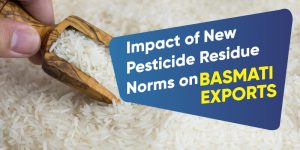Protect Mango Crops from Hoppers: Effective Methods
There are organic and chemical methods available to control this insect. Use neem oil, biological pesticides, and appropriate insecticides (Imidacloprid, Lambda-Cyhalothrin) for killing them. Mango hopper mainly on flowers and young leaves, a sucking sap and weakening the whole plant. Another thing is that it secretes honeydew, leading to the development of sooty mold. Furthermore, the flowers begin to drop, which denies a crop of yield.
KhetiGaadi always provides right tractor information
Mango Hopper: Unique Features
Mango hopper species are widely distributed. There could be six generations per year when the climate is right. As a serious pest of the mango, mango hopper harms flowers and young leaves as it sucks sap. Then, it secretes honeydew, favoring the development of sooty mold, which in turn obstructs photosynthesis. Eventually, the flowers wither and drop off. Another shame is that this pest produces “honeydew,” which fosters the growth of sooty mold, casting a pall over the plant’s entire photosynthesis process.
Control of Mango Hopper Infestation
Balanced irrigation and even neem oil can help reduce its effects for good. Mango hoppers infest worse on flowers and young leaves. Mango hoppers secrete honeydew; the plant can then develop sooty mold, who block up photosynthesis and stops reproduction. This results in flowers falling from the trees. When the pest becomes more than 15 in one branch, it becomes crucial to protect young plants before graduate work. Research and Social Studies Institute of Rural Development, Anhui Academy of Agricultural Sciences The number of infested branches per plant exceeds three.
Prevention Guide
First, all visible, infested buds and infected branches should be trimmed off. Also, be sure to burn these. In addition, there are natural control methods that can be studied and applied. These can include hand picking (but wear gloves in order to avoid direct exposure to the sticky substance increasingly generated by plants under stress), spraying neem oil, or planting cover crops to enhance plant vigor and create a rather unpleasant environment for pests to live in.
If the hopper population density is less than 4 hoppers per Infested and healthy buds are interspersed, while the infected ones can be picked off one by one as they appear Infested fruits should also be taken down. Shake the tree lightly to check for infestations, and then place the fruit in bags. It should be burned afterward. panicle, use Azadirachtina Neem-Based 1% 3 ml/litre. This is suitable for organic control.
Biological control measures:
Virulence testing of the fungal disease Metarhizium anisopliae on mango hoppers was carried out in Malaysia and Japan. Metarhizium showed a certain virulence against mango hoppers, although the spore application rate required to achieve the same level of control was higher than that for Beauveria.
Selective chemical control:
An insecticidal trial conducted in the field on mango hoppers also examined the effect of different insecticides on non-target pests. Among those tested, Imidacloprid and Tau-Fluvalinate caused the least harm to non-target natural enemies. Even so, some selective impact on their numbers was observed.
When the number of insects in the field is still relatively low, producers can spray neem-based (Azadirachtin) or biological pesticides one week before flowering and again during flowering. An example of a biological pesticide is imidacloprid.
Mango insects
Although there was little insect activity on the fruit trees, many prunings were observed on the ground where some psycho-physiological factors could have been involved, such as the migration of from infested plants to undisturbed surrounding areas or simply coming down and under one low lateral branch.
- Special precautions with Mango Hopper
- Combine organic and chemical methods to improve results
- Perform early in the morning or evening when bee activity is lowinaire
- Limit During the flowering period, avoid excessive use of insecticides
Stay connected to the KhetiGaadi WhatsApp channel and get the latest updates on farming innovations and government schemes. Visit KhetiGaadi for more information and guidance.
Contact Khetigaadi for guidance and updates on agriculture schemes for farmers:
Phone: 07875114466
Email: connect@khetigaadi.com
To know more about tractor price contact to our executive






